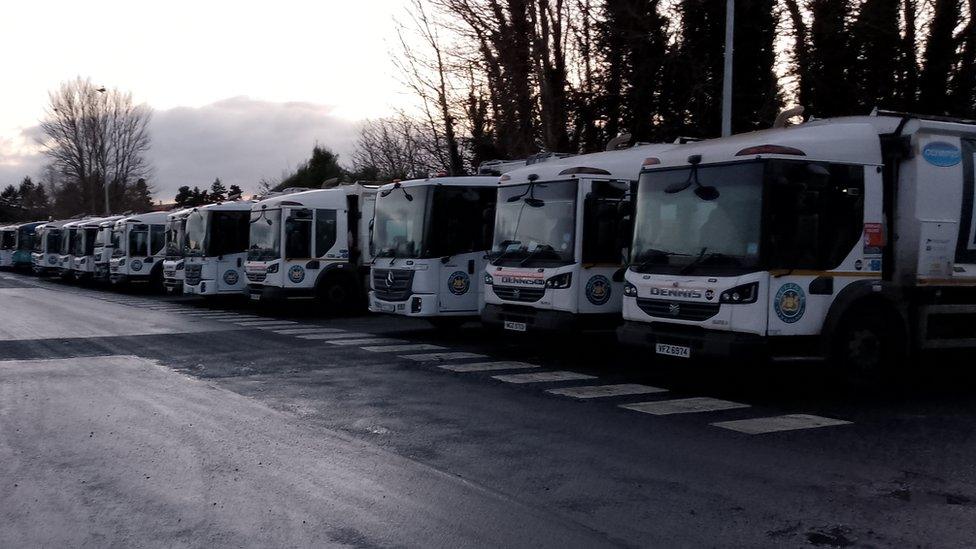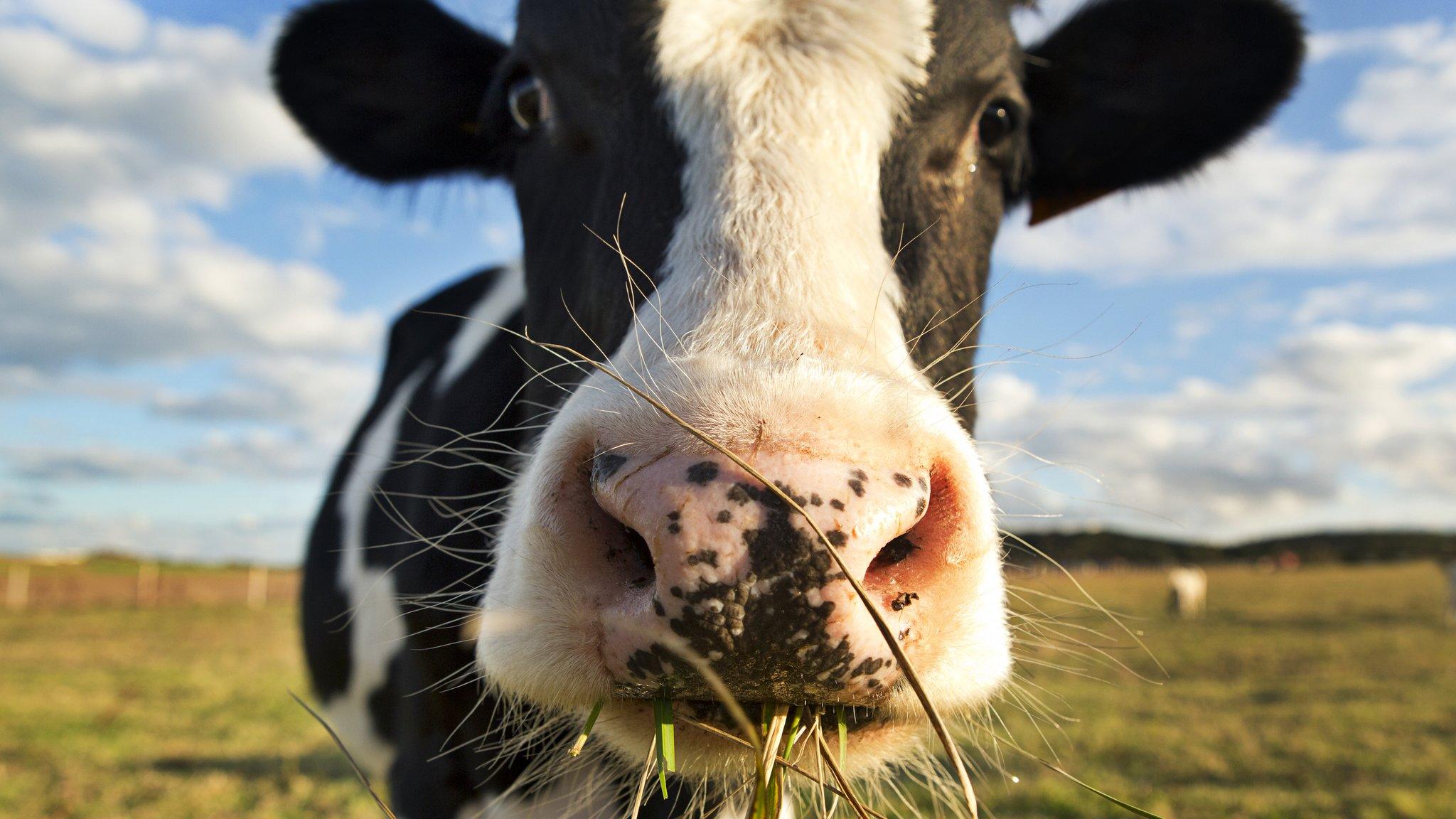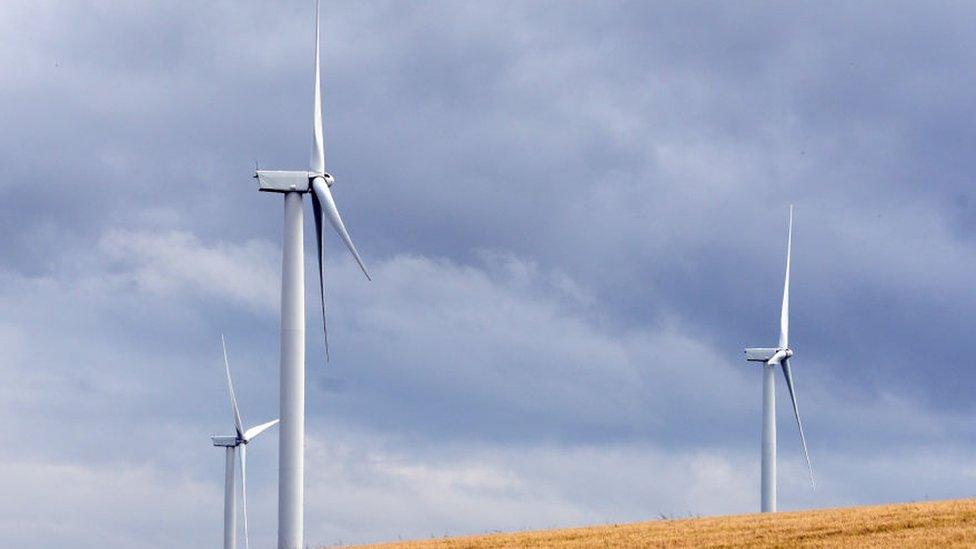Belfast City Council: Many vehicles now powered by vegetable oil
- Published
Vegetable oil used to power Belfast bin lorries
More than 200 vehicles, including bin lorries and street sweepers, are now being powered by vegetable oil, Belfast City Council has said.
This represents almost 50% of the council's heavy goods vehicle fleet.
Hydrotreated vegetable oil (HVO) is a low carbon, zero sulphur fuel made from waste renewable materials like rapeseed and sunflower oil.
It is a fossil-free alternative to diesel and can reduce greenhouse gas emissions by up to 90% per vehicle.
The move was part of the council's transition to net zero.
In June 2021 councillors agreed a climate fund of £1m towards internal projects to support the city's transition to net zero by 2050.

Other Northern Ireland councils say they are now trialling the fuel.
Lord Mayor of Belfast Ryan Murphy said the transition was about living up to the council's commitment to face the climate crisis head on.
"We felt getting rid of some of our diesel vehicles would help reduce carbon emissions," he said.
"And it has helped - we have seen through estimates that we've saved around 2,000 tons of emissions from going out into the atmosphere because of it."
Other councils across Northern Ireland have also said they are now trialling the fuel.
Fermanagh and Omagh District Council is currently conducting a pilot focusing on five vehicles previously powered by diesel.
Higher cost at the pumps
Head of waste management at the council Sinead McEvoy said it has set a target of having a net zero fleet by 2031 and the council has been exploring a range of alternative fuels.
"HVO fuel is around 50p more per litre than normal road diesel," she said.
"Obviously there is a higher cost in terms of what you pay at the pump - but the cost of climate action needs to be seen in the context of the benefit.
"There is a 90% reduction in carbon dioxide emissions per vehicle whilst we are using it - and we have also been exploring the use of electric cars and hydrogen and bio methane."
So is HVO fuel something that all consumers can adopt at the moment?
'A number of benefits'
Head of Energy at the Consumer Council of Northern Ireland, Richard Williams, said HVO is seen as a replacement for diesel.
"It's a got a number of benefits to it," he said.
"It can be put straight into a diesel engine and it produces 90% less emissions than normal diesel would.
"It also doesn't affect the actual running of the engine, so the performance is still the same."
"HVO is particularly suitable for use in things like bin lorries but for the average motorist it's probably not the way forward at the moment.
"The biggest problem is the price - it costs considerably more than diesel.
"It's also about availability to the average motorist. You can't just go up to a forecourt and get it.
"It's delivered in bulk - so organisations can use it for their lorries at a depo and store it in bulk - so it's good for them and their green credentials."

Nichola Mallon says companies are adopting HVO as a transitionary step
The Department for the Economy (DfE) said there is currently no large-scale production of HVO in Northern Ireland, meaning it relies upon imports from GB and elsewhere.
It said global supplies of biofuel are forecast to increase but several different sectors will compete for these.
Nichola Mallon, head of trade and devolved policy at Logistics UK, said a number of her members have trialled and adopted HVO fuel as a transitionary step to reduce emissions.
"The big barrier is the difference in price between HVO and diesel - you can spend up to 10% more and it's not viable for many logistics businesses who are already operating under very tight profit margins." she said.
"Logistics UK is pressing government to incentivise the adoption of HVO and other low carbon fuels through the tax system to make them more accessible.
"We are also calling for a long-term plan from government on the use of all low carbon fuels to help provide confidence on their use to our members."
Related topics
- Published2 March 2023

- Published14 December 2023
